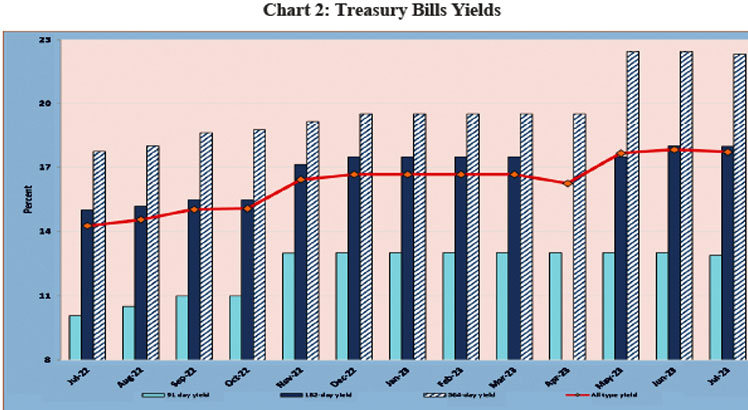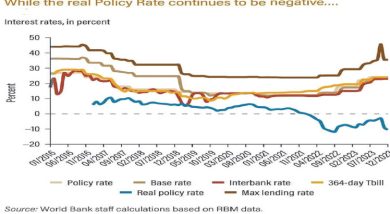T-bills yields register drop
Treasury Bills (T-Bills) yields have registered a drop over the previous months’ earnings, but market analysts say the trajectory remains upwards as inflation remain high.
Reserve Bank of Malawi (RBM) data shows that government securities, mostly T-bills rates, which rose by about five percentage points across all the three tenors from the second half of last year, have started to fall.
The data contained in a recently released monthly economic report shows that average monthly all-type T-bills yield marginally decreased to 17.7 percent in July, from 18 percent recorded.
According to the data, yields on the 364-day, 182-day and 91-day tenors decreased to 22.48 percent, 18 percent and 12.9 percent from 22.5 percent, 17 percent and 13 percent, respectively.

In an interview yesterday, market and investment analyst Cosmas Chigwe said the development is normal adding that such needs not to be looked too much into as the interest rate environment remains high.
He said: “As has been noted, the monetary authorities have been hiking the policy rate, the rate at which banks from the central bank as lender of last resort, significantly and increasing the Liquidity Reserve Requirement Ratio in a move to rein in Inflation through tightening of the monetary policy.
“This has automatically led to a rising interest rate trajectory. However, even with such a slope, the occasional monthly marginal declines are normal, as these are caused by market liquidity levels, which fluctuate on a day to day basis.”
Chigwe also observed that the government is likely to continue borrowing more through short-term in response to market dynamics such as increasing rates rather than a policy decision by government.
“In a rising interest rate environment, investors automatically want to invest short-term to take advantage of the higher rates on maturity.
“If they invest long-term, they lock their funds at that rate and therefore miss out on higher rates when interest rates increase. Therefore, as most investors in government securities in Malawi are institutional investors, it is normal for investors to push the government short,” he said.
Market analyst Bond Mtembezeka also observed that the fact that interest rates are tracking the policy rate, governments huge borrowing will continue having an impact on T-bills rates.
He said: “Economic agents usually want to be compensated or covered when inflation is biting by asking for higher returns [interest rates].
“That coupled with the fact that the government is relying heavily on borrowing from the market to make up for deficits, definitely this tends to raise government securities’ yields.”
In view of the widening budget deficit, projected to reach 8.8 percent of the gross domestic product in this financial year, government borrowing, especially from the domestic market, has been on the rise, effectively pushing up.





